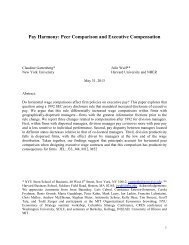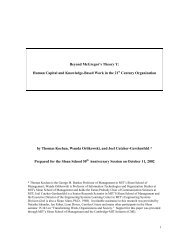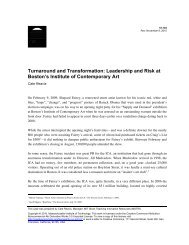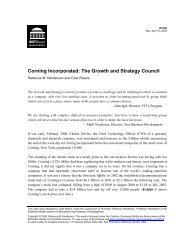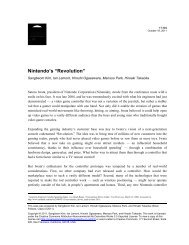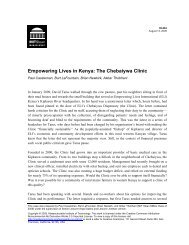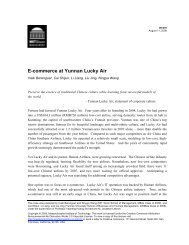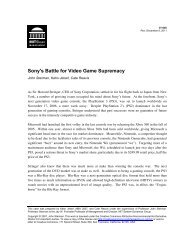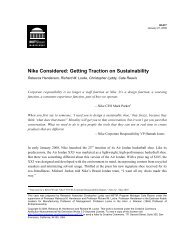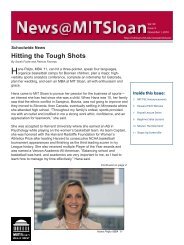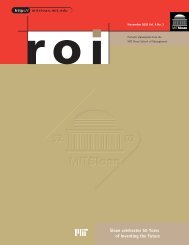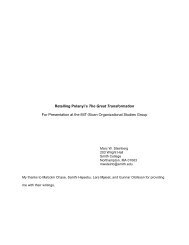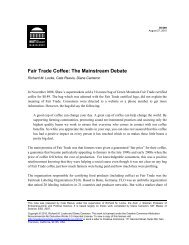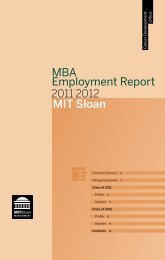Understanding earnings quality - MIT Sloan School of Management
Understanding earnings quality - MIT Sloan School of Management
Understanding earnings quality - MIT Sloan School of Management
You also want an ePaper? Increase the reach of your titles
YUMPU automatically turns print PDFs into web optimized ePapers that Google loves.
usefulness <strong>of</strong> <strong>earnings</strong> in debt markets relative to equity markets provides an opportunity 1) to<br />
examine accounting choices that are irrelevant to <strong>quality</strong> characteristics <strong>of</strong> interest to equity markets,<br />
and 2) to assess trade-<strong>of</strong>fs between multiple incentives for producing high-<strong>quality</strong> <strong>earnings</strong>.<br />
6.2 Non-market consequences <strong>of</strong> <strong>earnings</strong> <strong>quality</strong><br />
The categories <strong>of</strong> non-market consequences <strong>of</strong> EQ are: 1) litigation against the firm, 2)<br />
compensation, 3) executive and director turnover, 4) audit opinions, 5) analysts’ forecasts, and 6)<br />
real activities including disclosure decisions and investment/financing activities. A noteworthy<br />
feature <strong>of</strong> these categories is that many <strong>of</strong> them are also the “determinants” variables that were<br />
discussed in Section 5, which emphasizes the importance <strong>of</strong> considering causality when interpreting<br />
the evidence.<br />
6.2.1 Consequences <strong>of</strong> <strong>earnings</strong> <strong>quality</strong> for litigation<br />
Palmrose and Scholz (2004) find that the likelihood <strong>of</strong> litigation increases with restatements,<br />
and Lev, Ryan, and Wu (2008) find that a restatement that depicts a different pattern <strong>of</strong> <strong>earnings</strong><br />
than was previously reported is associated with a greater likelihood <strong>of</strong> shareholder litigation. Gong,<br />
Louis, and Sun (2008) and DuCharme, Malatesta, and Sefcik (2004) exploit high-risk settings –<br />
stock-for-stock swaps and IPOs and SEOs, respectively – to examine whether abnormal accruals are<br />
associated with litigation propensity. They find a positive association between abnormal accruals in<br />
the period leading up to the transactions and post-transaction litigation.<br />
Because the restatement studies (Palmrose and Scholz, 2004; Lev et al., 2008) control for the<br />
magnitude <strong>of</strong> the restatement, they conclude that it is the restatement itself that affects litigation<br />
propensity. They suggest that a restatement is the type <strong>of</strong> evidence that increases the likelihood that<br />
131



